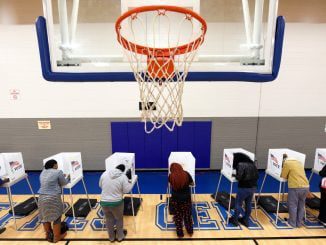
I’m a Democrat, and I sponsored legislation with Republicans to implement photo voter identification in North Carolina.
I have always been my own man with my own thoughts and my own opinions. Hopefully, you will — as I have — reach your own conclusion informed by your personal convictions, free from the intrusive pressures of those who wish to form your opinion for you.
I didn’t support the previous iteration of voter ID, which a federal court ruled unconstitutional, because I believe it would have made it more difficult for some to vote, including communities of color. Still, as some of my colleagues also said during debate over the bill, I disagree that the Republican sponsors had racist motivations, which has become the unfortunate narrative in the years since.
I submitted my own bipartisan photo voter identification proposal back then. I did so because I believed then, as I do now, that requiring voters to show identification is a reasonable step to secure the most sacred act in a democratic republic.
Voter identification proposals often get caught up in the false conclusion that an ID requirement necessarily suppresses votes, particularly for black citizens like myself. That concern requires vigilance, but it is no more an absolute truth than the charge that all opponents of voter ID support fraud at the ballot box. But it is natural for any discussion of voting requirements to raise suspicions. Our country fought a war to eliminate the scourge of slavery, and even then, the white powers-that-be came up with new, creative ways to continue black subjugation.
Because of our history, all discussion of legal requirements governing the right to vote demand cold scrutiny.
Scrutiny, though, is different from pre-ordained conclusions from partisans with interests other than good policy. That game does not interest me and I will not play it.
Fifty-five percent of voting North Carolinians cast a ballot to amend their constitution to require a photo identification when voting. The will of those 2 million voters should serve as a guiding light for the legislature and should not be casually dismissed.
The task before the Senate was to respect the will of the people while bridging the gap between historical injustices, present needs and future consequences.
African-Americans talk about wanting a “seat at the table;” well now that we have one, I think it’s important to participate in the legislative process to improve outcomes and protections for our community.
And that is what I did.
I considered the product developed by my Republican colleagues a good-faith starting point which could be improved even further, and to their credit, the Republican-led Senate accepted a large number of ideas and amendments offered by the Democrats.
My line–in–the–sand was a change to allow voters to obtain free photo identification cards through the early voting period, and the Republican sponsors agreed.
This back-and-forth, conducted with trust and good faith, is what creates good policy.



